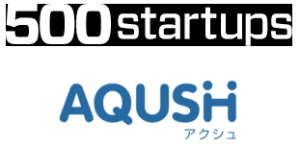 The Geological Society Of America (also known as the Geosociety) completed the installation of a solar power generating rooftop at their Boulder, Colorado headquarters yesterday. The project was funded by Xcel Energy and the City of Boulder, and installed by Bella Energy.
The Geological Society Of America (also known as the Geosociety) completed the installation of a solar power generating rooftop at their Boulder, Colorado headquarters yesterday. The project was funded by Xcel Energy and the City of Boulder, and installed by Bella Energy.
Good thing they bought into renewables already. The price of solar photovoltaic panels could rise steeply if the Geosociety’s predictions about mineral trade wars come true.
The group of 17 minerals in the rare earth category go into everything from missile guidance systems and mobile phones, to flat screen TVs, lasers and new energy technology. Pending scarcity— driven by increases in global demand, and China’s near-monopoly on the minerals market— could lead to prices that eat into industry margins, a slow down for clean tech projects worldwide, and diplomatic clashes between supplier nations (China) and buyer nations (U.S., Germany and Japan).
Rare earth minerals are essential to build photovoltaic panels, wind turbines, fuel cells and vehicle batteries. As widely reported, including by the Geosociety, BBC and the New York Times, some 97% of the global supply of rare earth minerals now comes from China.
Canada, Australia and the U.S. used to have more global market share, and rare earth minerals mines but the relative value of the currency, and relaxed-to-poor environmental regulation of mines in China made sourcing there favorable for buyers.
A trade war is imminent, James Burnell of the Colorado Geological Survey explained in the Geosociety report:
“China is preparing to build 330 giga-watts worth of wind generators. That will require about 59,000 tons of neodymium to make high-strength magnets — more than that country’s annual output of neodymium. China supplies the world with a lot of those rare earth elements, like neodymium, and will have little or none to export if it moves ahead with its wind power plans…So the source for the West is problematical.”
Earlier this month, during the East Asia Summit, Chinese officials told U.S. Secretary of State Hillary Clinton that Beijing aims to be a reliable minerals supplier and would not impose bans on exports of industrial minerals for political purposes. Sec. Clinton reportedly expressed gratitude, but requested further details on China’s export policies and new assurances.
Today, Reuters reported, 35 global business and trade associations— including the Consumer Electronics Association and the Alliance of Automobile Manufacturers and other major consumers of rare earth minerals— called on the Group of 20 (G-20) summit of the world’s 20 largest economies to address scarcity and trade war concerns at their forthcoming meeting, Nov. 11-12 in Seoul.
Officials from Japan and Germany have already complained that their automotive, and clean tech industries have been adversely impacted by China’s tightening of mineral exports. China has denied the implications of market manipulation and political motivations to reign in mineral exports. The country’s officials said China was trying to control some of the negative environmental impacts of mining, instead.